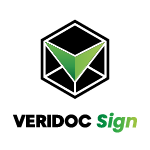Description

IDfy

VeriDoc Sign
Comprehensive Overview: IDfy vs VeriDoc Sign
As of my last update, IDfy and VeriDoc Sign are two distinct products that serve specific needs within the identity verification and document management sectors. Below is a comprehensive overview of each:
IDfy
a) Primary Functions and Target Markets:
- Primary Functions: IDfy specializes in identity verification and fraud prevention. The platform offers services such as background checks, identity document verification, facial recognition, and credit underwriting. It helps businesses automate the process of verifying individual identities using proprietary technology and machine learning algorithms.
- Target Markets: IDfy targets a wide range of industries, including financial services, e-commerce, telecommunications, and gig economy platforms. The service is crucial for businesses that require reliable identity verification processes to onboard customers or employees securely and efficiently.
b) Market Share and User Base:
- Market Share: IDfy is recognized as a leading player in the identity verification industry, particularly in India. It services numerous banks, telecommunication firms, and gig economy platforms.
- User Base: While specific user base numbers are proprietary, IDfy services a large array of enterprise clients and has verified millions of identities since its inception.
c) Key Differentiating Factors:
- Comprehensive Verification: IDfy offers end-to-end solutions that can be integrated into any industry's existing framework, providing a seamless verification process.
- Machine Learning Integration: The platform uses advanced machine learning techniques to continuously improve the accuracy and speed of verifications.
- Local Expertise: Particularly in India, IDfy’s deep understanding of local regulations and document standards provides a significant advantage.
VeriDoc Sign
a) Primary Functions and Target Markets:
- Primary Functions: VeriDoc Sign provides electronic signature and document management solutions. It allows documents to be signed electronically in a secure manner, ensuring authenticity and compliance.
- Target Markets: VeriDoc Sign targets organizations across multiple sectors including real estate, legal, healthcare, and government institutions. Any business that requires secure document transactions can utilize this platform to streamline processes.
b) Market Share and User Base:
- Market Share: In the global e-signature market, which includes established players like DocuSign and Adobe Sign, VeriDoc Sign is a growing competitor leveraging blockchain for enhanced document security.
- User Base: The platform is expanding its footprint, appealing to businesses looking for additional layers of security in document management. Exact numbers on the user base might not be publicly provided but the integration of advanced cryptographic technology positions it as a niche player.
c) Key Differentiating Factors:
- Blockchain Technology: VeriDoc Sign differentiates itself with the integration of blockchain technology, which enhances security and prevents document tampering.
- Security Focus: The application emphasizes document security and integrity, making it a preferred choice for industries with stringent compliance needs.
- User Experience: Provides a straightforward, user-friendly interface for both signers and administrators, enhancing adoption.
Comparative Analysis
- IDfy vs. VeriDoc Sign: While IDfy focuses predominantly on identity verification, VeriDoc Sign is aimed at the secure signing and management of documents. Their markets overlap slightly where document signing requires verified identity, but each product predominantly serves distinct purposes.
- Market Positioning: IDfy is more entrenched in the identity verification segment, particularly in emerging markets, while VeriDoc Sign is focusing on carving out a niche among industries emphasizing document security.
- Technology Utilization: IDfy offers advanced verification technologies including facial recognition, while VeriDoc Sign leverages blockchain to provide enhanced security for documents.
These distinctions cater to different strategic objectives within organizations, allowing businesses to select the product that best aligns with their operational needs.
Contact Info

Year founded :
2011
+91 1800 123 4339
Not Available
India
http://www.linkedin.com/company/idfy

Year founded :
Not Available
+61 7 3112 8080
Not Available
Australia
http://www.linkedin.com/company/veridoc-sign
Feature Similarity Breakdown: IDfy, VeriDoc Sign
When comparing IDfy and VeriDoc Sign, it's important to understand that they both operate in the broader space of digital verification and document management but focus on different specific functionalities. Below is a breakdown of their features and interfaces:
a) Core Features in Common:
-
Document Verification:
- Both IDfy and VeriDoc Sign offer document verification services that are essential for ensuring the authenticity of documents.
-
Security and Compliance:
- They prioritize security, ensuring data protection and compliance with relevant legal standards.
-
Integration Capabilities:
- Each platform provides options to integrate with other systems and software to streamline workflows.
-
Digital Signatures:
- VeriDoc Sign inherently focuses on digital signing, while IDfy includes digital verification which could support signing processes.
b) User Interface Comparison:
-
Ease of Use:
- Both platforms aim for a user-friendly interface, though the target user might influence the perceived intuitiveness. IDfy often targets a broader range of verification needs which could result in a more complex interface for users looking primarily for document signing features.
-
Design:
- IDfy’s design is likely oriented towards businesses needing comprehensive verification services, with dashboards and analytics that assist in managing large-scale verification tasks.
- VeriDoc Sign focuses on the signing process, with a clean and straightforward interface geared towards making document signing simple and quick.
-
Customization:
- Both interfaces may offer customization options, but the level and focus of customization might differ. VeriDoc Sign could provide more detailed options in terms of signing protocols, whereas IDfy might offer broader customization in verification workflows.
c) Unique Features:
IDfy:
-
Identity Verification:
- IDfy excels in identity verification features, such as KYC (Know Your Customer) checks, background checks, and more extensive document verification processes beyond just signing.
-
AI and Machine Learning:
- IDfy employs advanced technologies to automate and improve accuracy in verification processes.
-
Industry-Specific Solutions:
- Tailored solutions for various industries needing specific compliance measures like BFSI, telecom, and e-commerce.
VeriDoc Sign:
-
Blockchain Technology:
- Utilizes blockchain to enhance the security and integrity of document signing, ensuring that once a document is signed, it cannot be altered without detection.
-
Focus on Signing Process:
- Offers a streamlined signing process, with features like multiple signers, sequential/parallel signing workflows, and reminders for pending signatures.
-
Digital Audit Trail:
- Provides a comprehensive audit trail for each signed document, highlighting the entire process it underwent.
In summary, while both IDfy and VeriDoc Sign share some fundamental functionalities relevant to document management and verification, they cater to different aspects of this field: IDfy is more about comprehensive verification, and VeriDoc Sign focuses on secure digital signing. Their interfaces and unique features reflect their specialization, with IDfy offering broader industry-centric solutions and VeriDoc Sign enhancing security and simplicity in the signing process.
Features

Not Available

Not Available
Best Fit Use Cases: IDfy, VeriDoc Sign
IDfy
a) Best Fit Use Cases for IDfy
IDfy is primarily designed for businesses that require robust identity verification and fraud detection solutions. Its advanced technologies are best suited for:
-
Financial Institutions and Banks: IDfy is particularly advantageous for KYC (Know Your Customer) processes, helping banks and financial institutions verify customer identities quickly and accurately.
-
E-commerce and Marketplace Platforms: These platforms can use IDfy to verify sellers and buyers to prevent fraud and ensure trust within their ecosystems.
-
Telecommunications: For SIM card retailers and telecom companies, IDfy facilitates the verification of customers to combat SIM card fraud.
-
HR and Recruitment Firms: Companies that need to onboard employees quickly can use IDfy for background checks and validations, ensuring the identity and credibility of candidates.
-
Shared Economy and On-Demand Services: Businesses like ride-sharing or rental services can use IDfy to verify users and service providers, enhancing safety and trust.
d) Industry Verticals and Company Sizes for IDfy
IDfy caters to a wide range of industry verticals requiring identity verification services. It's suitable for large enterprises that handle significant volumes of transactions and customer interactions, as well as small to medium-sized businesses (SMBs) that need cost-effective, reliable verification methods. Industries like finance, retail, telecom, and gig economy stand to benefit immensely from IDfy's offerings.
VeriDoc Sign
b) Best Fit Use Cases for VeriDoc Sign
VeriDoc Sign is an electronic signature solution that ensures document authenticity and security. It is most suitable for:
-
Legal and Real Estate Firms: Agencies that require high levels of document integrity can use VeriDoc Sign to streamline contract signatures with authenticity verification, ensuring legal compliance.
-
Healthcare: Hospitals and clinics can manage consent forms and medical records electronically, preserving the integrity and confidentiality of sensitive information.
-
Insurance Companies: Forms, claims, and policy documents can be signed digitally, enhancing operational efficiency and security.
-
Government and Public Sector: VeriDoc Sign is useful for signing official documents securely, maintaining the integrity of public records, and reducing paperwork.
-
Education: Institutions can use it for applications, enrollment forms, and digital diplomas, ensuring documentation is both secure and readily accessible.
d) Industry Verticals and Company Sizes for VeriDoc Sign
VeriDoc Sign is versatile enough to cater to any industry that relies heavily on paper-based workflows and documentation. It serves large enterprises needing secure document signing solutions, as well as SMBs that aim to digitalize their operations and reduce costs. Industries like legal, healthcare, real estate, insurance, and education can leverage VeriDoc Sign for its efficiency and layer of security in document handling.
Conclusion
Both IDfy and VeriDoc Sign cater to different business needs and sectors. IDfy provides essential identity verification services critical for industries dealing with large customer bases and potential fraud risks, while VeriDoc Sign is pivotal for sectors that emphasize document integrity and require secure digital signatures. Both products serve a variety of company sizes, offering scalable solutions to meet the demands of diverse business environments.
Pricing

Pricing Not Available

Pricing Not Available
Metrics History
Metrics History
Comparing teamSize across companies
Conclusion & Final Verdict: IDfy vs VeriDoc Sign
When evaluating IDfy and VeriDoc Sign to determine which product offers the best overall value, it's essential to consider the intended use, specific features, and company needs. Here's a comprehensive conclusion and verdict, incorporating all the requested points:
a) Considering all factors, which product offers the best overall value?
Overall Value Winner: IDfy
IDfy generally provides better overall value for businesses that require comprehensive identity verification solutions with robust security and compliance features. It is especially advantageous for industries where stringent identity checks are mandatory, such as financial services, healthcare, and e-commerce. IDfy’s scalability, security features, and wide range of identity verification options make it particularly valuable for larger organizations or those expecting significant growth.
b) Pros and Cons of Choosing Each Product
IDfy
-
Pros:
- Comprehensive Verification Solutions: Offers a wide array of identity checks, such as KYC, KYB, and AML, which are essential for compliance in regulated industries.
- Scalability: Suitable for both small businesses and large enterprises due to its ability to scale and meet complex demands.
- Advanced Security Features: This includes secure data handling and encryption, which are crucial for sensitive identity data.
- Ease of Integration: API-based integrations make it easier for businesses to incorporate IDfy into existing systems.
-
Cons:
- Cost: May be pricier than simpler solutions, potentially limiting its accessibility for very small businesses or startups.
- Complex Implementation: The extensive feature set may require a steeper learning curve and more time to implement fully.
VeriDoc Sign
-
Pros:
- User-Friendliness: Known for its intuitive interface, making it easy for users to adopt quickly without extensive training.
- Cost-Effective: Generally less expensive than comprehensive identity verification platforms, making it an appealing choice for small to medium-sized businesses.
- Specific Document Verification Focus: Excellent for businesses primarily interested in document signing and validation.
-
Cons:
- Limited Identity Verification Options: Does not offer the breadth of identity verification features as IDfy, which could be a limitation for industries requiring extensive compliance.
- Scalability: May not be as well-suited for companies that anticipate rapid growth and need a wider range of verification services.
c) Recommendations for Users Deciding Between IDfy vs. VeriDoc Sign
-
Assess Your Needs: Clearly define what your business requires in terms of identity verification and document handling. If your industry is highly regulated with strict compliance needs, IDfy's comprehensive suite is likely more appropriate. On the other hand, if your primary need is for digital document verification and signing without extensive identity verification, VeriDoc Sign might suffice.
-
Consider Scale and Growth Potential: For small businesses with limited immediate needs but plans for growth, IDfy's scalability could provide future-proofing. Conversely, cost-sensitive businesses or those without complex verification requirements can benefit from the simplicity and affordability of VeriDoc Sign.
-
Budget Constraints: Evaluate your budget and weigh it against the need for advanced features. IDfy might involve a higher initial investment but could offer more long-term value for specific sectors.
-
Trial and Testing: If possible, leverage free trials or demos to assess how well each product integrates with your current systems and processes. This can provide firsthand insight into usability and compatibility, aiding in the decision-making process.
Ultimately, the best choice depends on aligning the product features with business goals, compliance requirements, and budget considerations.
Add to compare
Add similar companies




